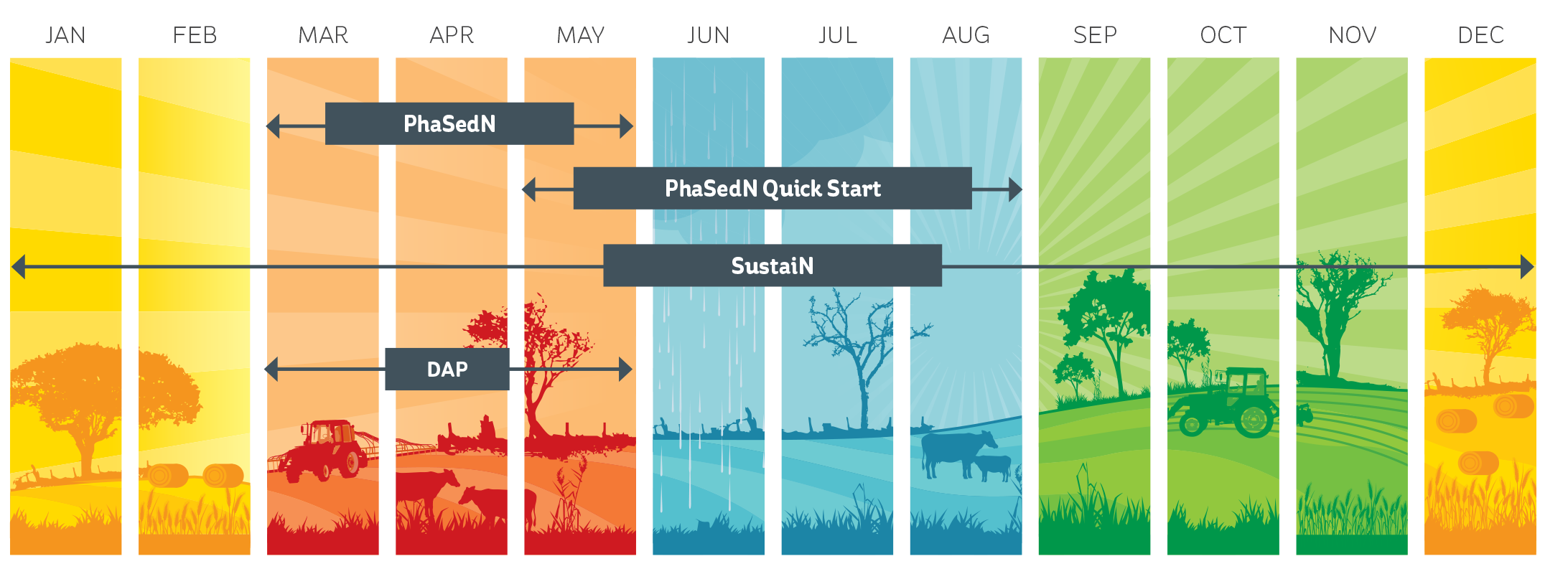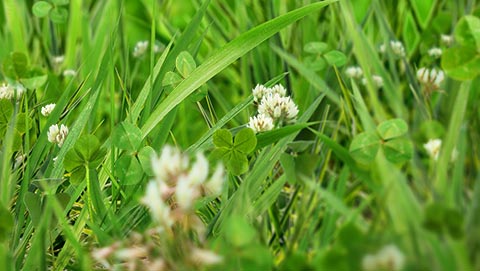Why use nitrogen on hill country?
Nitrogen (N) offers farmers a relatively cheap and effective way of growing high-quality feed for livestock. It has been used extensively in the dairy industry and is starting to gain acceptance in other farming sectors.
Nitrogen is a growth promoter and used well offers a cheap source of high-quality supplementary feed; in many situations it is a viable alternative to buying in silage or other feeds.
Research into nitrogen on hill country
To investigate the potential pasture growth on hill country, AgResearch scientists conducted a two-year trial that involved applying 50 kg N/ha on eight occasions each year (Lambert et al., 2003). The trial shows that even when soil fertility was low applying nitrogen resulted in a 22.3 to 1 response. Where soil fertility was better, the nitrogen response was lower, but the actual amount of pasture grown was higher.
When to use nitrogen on hill country
As nitrogen is a growth promoter, it works best when the conditions for pasture growth are optimal. Cool soil temperatures will slow grass growth and so the extra growth resulting from nitrogen application will be lower.
How to use nitrogen on hill country
The principles that govern good practice for nitrogen application are equally valid on easy and hill country. Attention to some key points will help to ensure that the nitrogen is used effectively and efficiently.
- Construct a feed budget so that you know when shortfalls are likely to occur. This planning will help you time nitrogen applications for best effect
- If trialling nitrogen use for the first time, consider whether you have sufficient stock to eat the extra pasture
- Until research shows otherwise, it is recommended that nitrogen applications on hill country be made at a moderate rate, e.g. no one application in excess of 50 kg N/ha and no more than 190 kg N/h/year
- Avoid applying nitrogen near vulnerable ecosystems such as streams and rivers
- Using nitrogen fertiliser has only a minimal effect on clover unless the pasture is allowed to get too long. If this occurs the grass will shade out the clover, reducing its competitiveness
- To prevent overgrowth of clover by grasses, graze the pasture regularly
- Where hill country paddocks are extensive, it may be advisable to increase subdivision and water supply in order to improve grazing efficiency

Download and read the full article here

Understanding Nitrogen on your farm
Nitrogen plays an important role in New Zealand agriculture. When used appropriately, it is an effective addition to the nitrogen provided naturally by clovers and other legumes.
To help you understand nitrogen use on your farm we have collated a range of nitrogen advice backed by science.